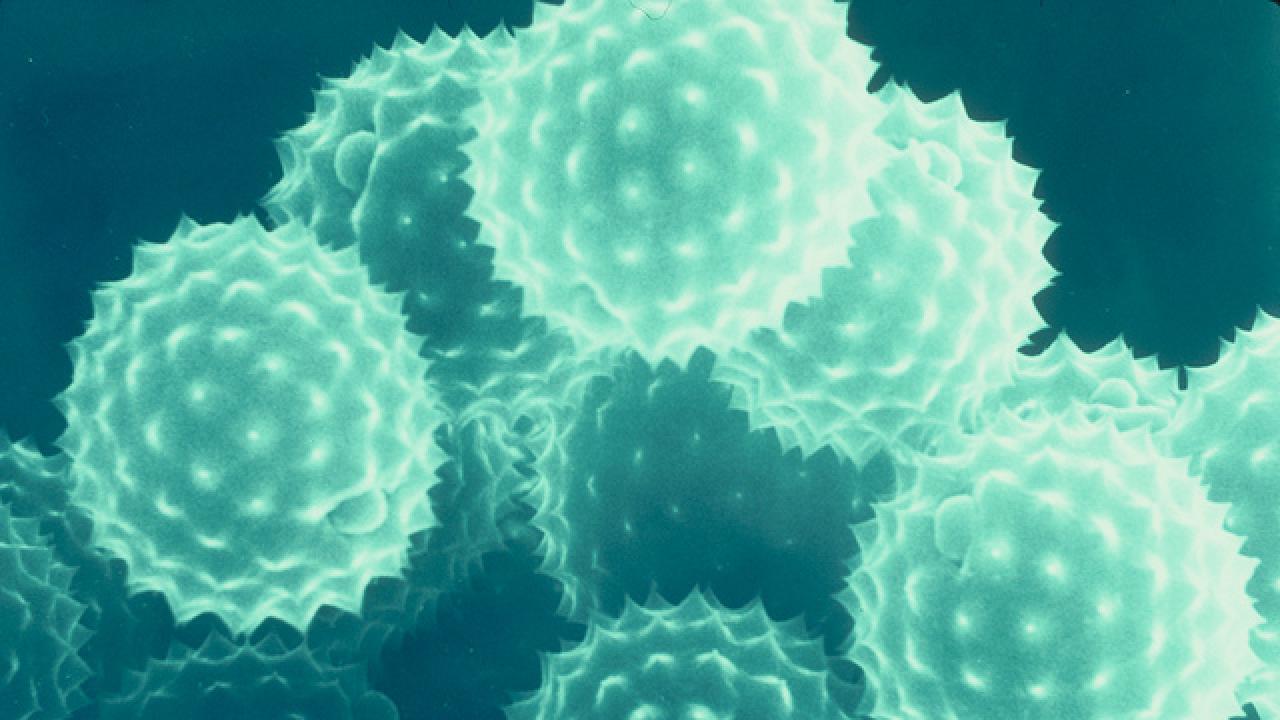
Europe should be prepared for a spike in airborne ragweed pollen and related allergy cases, according to a study published online this week in Nature Climate Change.
Two researchers from ICTP's Earth System Physics (ESP) section-- Fabien Solmon and former postdoctoral fellow Li Liu--contributed to the study, which points to climate change and land-use practices as the chief culprits for the likely increase in pollen by encouraging the spread of common ragweed (Ambrosia artemisiifolia), a plant native to North America but an invasive alien species in Europe.
When exposed to ragweed pollen, susceptible individuals can suffer allergic reactions, with symptoms including itchy eyes, sneezing and, in some severe cases, respiratory distress.
ESP, which develops and maintains sophisticated climate models, contributed its expertise to the study by simulating the seasonal production of Ambrosia pollen, its release and atmospheric transport. These simulations, along with those produced by the study's co-authors, predict that by 2050 airborne ragweed pollen concentrations will be an average of four times higher than current levels. Study results project a substantial increase in pollen load in north-central Europe, northern France and southern UK—areas where pollen loads are virtually zero at present—and a further increase in parts of central Europe which are already affected by ragweed colonization.
The paper, titled "Effects of climate change and seed dispersal on airborne ragweed pollen loads in Europe", can be accessed online from the Nature Climate Change website.













